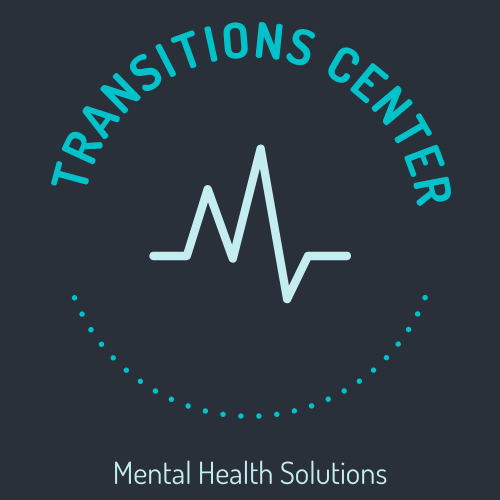Mental disorders are conditions that affect a person’s mood, thinking, and behavior. There are many different types of mental disorders, and they can range from mild to severe. In this blog post, we will discuss the seven most common types of mental disorders. If you think that you or someone you know may have a mental disorder, it is important to seek help from a professional.
Why Is It Important To Be Aware Of The Seven Different Types Of Mental Disorders?
One of the most common reasons that people seek out mental health treatment is because they are struggling with one or more types of mental disorders. Mental disorders can affect our thoughts, feelings, behaviors, and physical well-being. Many mental disorders have overlapping symptoms, which can make it difficult to accurately diagnose them and treat them effectively. By becoming more familiar with the seven different types of mental disorders, we can better understand how to recognize and manage these conditions.
The seven most common types of mental disorders include anxiety disorders, mood disorders, attention-deficit hyperactivity disorder (ADHD), autism spectrum disorder, schizophrenia, dissociative identity disorder (DID), and personality disorders. Let’s take a closer look at each of these conditions.
1. Anxiety Disorders
Anxiety disorders are characterized by excessive fear, worry, and avoidance behavior. Some examples of common anxiety disorders include generalized anxiety disorder (GAD), obsessive-compulsive disorder (OCD), panic disorder, post-traumatic stress disorder (PTSD), social phobia (social anxiety disorder), and specific phobia. People with anxiety disorders may experience intense and overwhelming levels of fear, worry, or panic in certain situations. They may also avoid certain activities or places altogether because they are afraid that something bad will happen.
2. Mood Disorders
Mood disorders are characterized by persistent feelings of sadness, hopelessness, loss of interest in activities that were once enjoyable, and/or fatigue. Some common mood disorders include major depressive disorder (MDD), bipolar disorder, postpartum depression, seasonal affective disorder (SAD), premenstrual dysphoric disorder (PMDD), and dysthymia. People with mood disorders may experience these symptoms for weeks or months at a time and may find it challenging to function normally in daily life.
3. Attention-Deficit Hyperactivity Disorder (ADHD)
Attention-deficit hyperactivity disorder is characterized by difficulty paying attention, impulsivity, and hyperactivity. People with ADHD may have trouble focusing on tasks or controlling their impulses, which can lead to poor performance at school or work, as well as relationship problems. Although ADHD is typically diagnosed in children and teenagers, adults can also develop the condition.
4. Autism Spectrum Disorder
Autism spectrum disorder is a developmental disability that causes difficulties with social interaction, communication, and behavior. People with autism may have difficulty communicating or understanding nonverbal cues, such as facial expressions and body language. They may also struggle with repetitive behaviors and be more sensitive to sensory stimuli than most people. Although autism is a lifelong condition that cannot be cured, it can be managed with therapy, medication, and other interventions.
5. Schizophrenia
Schizophrenia is a mental disorder characterized by hallucinations, delusions, and disorganized thinking. People with schizophrenia may experience visual or auditory hallucinations and believe in things that do not exist. They may also struggle to process information effectively, which can lead to poor performance at work or school. Although schizophrenia is a serious condition, medications and therapy can help reduce symptoms.
6. Dissociative Identity Disorder (DID)
Dissociative identity disorder is a severe mental disorder in which two or more distinct identities or personality states take control of an individual. People with DID may experience amnesia, which can make it difficult to remember events from the past or what they are doing in the present moment. Although DID is thought to be rare, some experts believe that the disorder is widely underdiagnosed.
7. Personality Disorders
Personality disorders are mental health conditions that cause significant distress and impair an individual’s ability to function in daily life. People with personality disorders may exhibit traits like impulsivity, irritability, hostility, or aggression and have trouble maintaining stable relationships or jobs. Although there is no cure for personality disorders, certain therapies can help reduce symptoms and improve quality of life.
Are There Any Resources Or Support Available For People With Mental Disorders?
There are many resources and support available for people living with mental disorders, including therapy, medication, support groups, and educational programs. Some common treatment options include cognitive behavioral therapy (CBT), psychotherapy, counseling, and mindfulness-based interventions. Additionally, there are a number of resources available to help people find support groups and other types of assistance, including online forums, community centers, and mental health organizations. If you or someone you know is struggling with a mental disorder, it’s important to seek help from a qualified healthcare professional as soon as possible.
Conclusion
Overall, there are many different types of mental disorders that can affect people in all areas of their lives. If you or someone you know is experiencing the symptoms of a mental disorder, it’s important to seek treatment as soon as possible in order to manage the condition and improve overall quality of life. There are many resources and support available for people living with mental disorders, including therapy, medication, support groups, and educational programs. Some common treatment options include cognitive behavioral therapy (CBT), psychotherapy, counseling, and mindfulness-based interventions. Whether you are dealing with a mental disorder on your own or seeking help from a healthcare professional, there are many resources available to help you navigate the treatment process and manage your condition over time.
This post was created with the assistance of cbd online companies. At Mary Jane’s CBD Dispensary, they are passionate about providing their customers with the best quality products and services. Not only do they offer a variety of top-notch CBD Hemp products for you to choose from, but also Naturopathic treatments for physical disabilities or mental illnesses. They want everyone who comes through their online doors to leave feeling refreshed and healthy so they can live their lives on their own terms. Get in touch if you have any questions!

